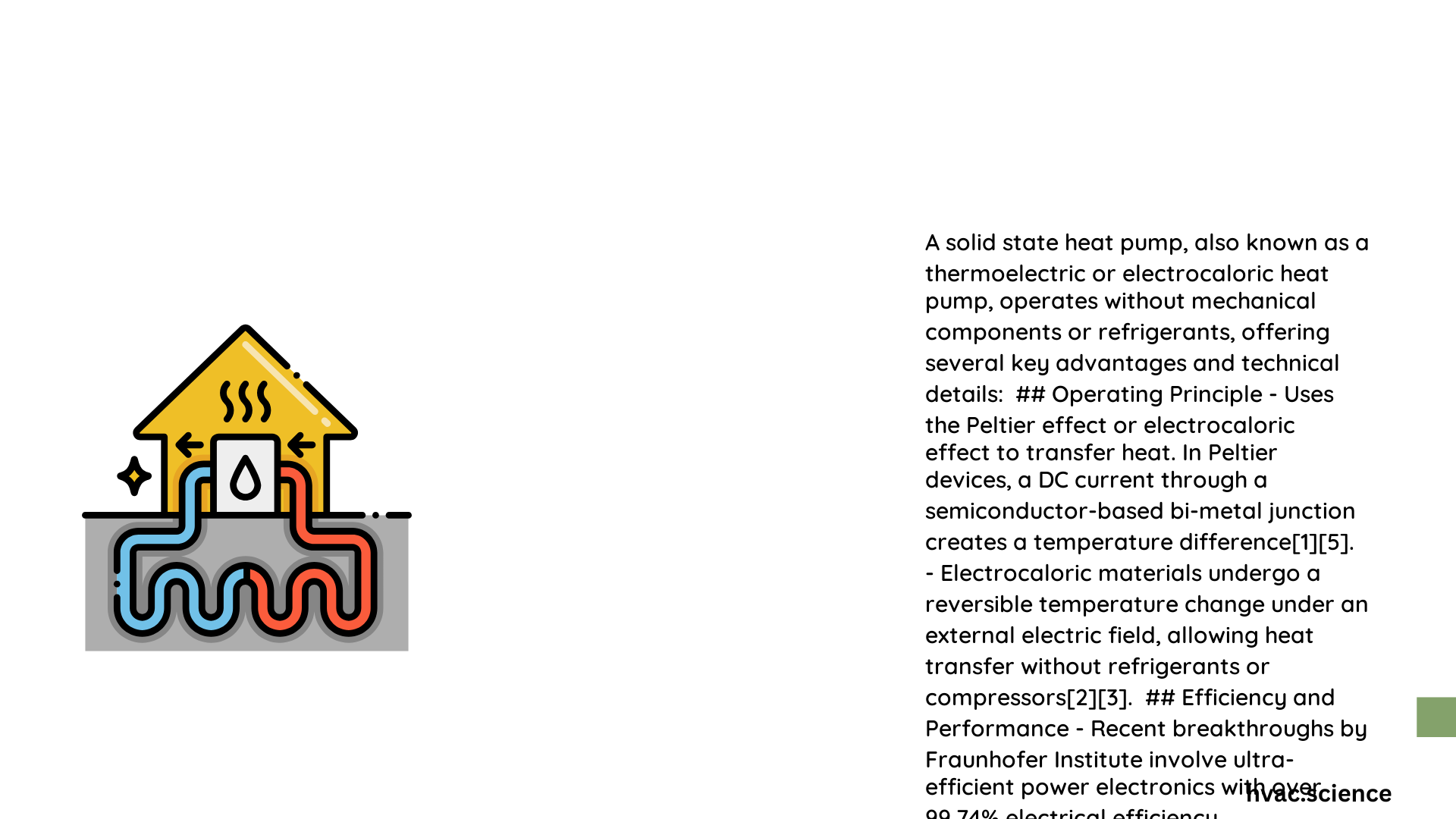Solid state heat pumps represent a groundbreaking technological advancement in thermal energy transfer, leveraging advanced semiconductor materials and electrocaloric principles to achieve unprecedented efficiency. Unlike traditional compressor-based systems, these innovative devices promise higher coefficient of performance (COP), reduced maintenance requirements, and minimal environmental impact, positioning themselves as a transformative solution for residential, commercial, and industrial temperature management needs.
What Makes Solid State Heat Pumps Unique?
Solid state heat pumps distinguish themselves through several remarkable characteristics:
How Do Solid State Heat Pumps Operate?
Solid state heat pumps utilize electrocaloric materials that generate temperature changes when subjected to electrical fields. This fundamental mechanism allows for:
- Direct thermal energy transfer without mechanical compression
- Elimination of moving parts
- Reduced mechanical wear and tear
- Enhanced energy conversion efficiency
What Are the Key Performance Metrics?
| Performance Metric | Traditional Heat Pump | Solid State Heat Pump |
|---|---|---|
| Coefficient of Performance | 3-4 | Up to 6-7 |
| Electrical Efficiency | 90% | 99.74% |
| Temperature Range | Limited | Broader spectrum |
| Maintenance Complexity | High | Low |
What Materials Enable Solid State Heat Pump Technology?
Critical materials driving solid state heat pump innovation include:
- Electrocaloric Ceramics
- Barium titanate
- Lead magnesium niobate
-
Advanced perovskite structures
-
Semiconductor Components
- Gallium nitride (GaN) transistors
- Advanced power electronics
- High-efficiency voltage converters
What Are the Potential Applications?
Solid state heat pumps demonstrate versatility across multiple domains:
- Residential Heating/Cooling
- Ultra-efficient home temperature management
- Reduced energy consumption
-
Compatibility with renewable energy systems
-
Industrial Processes
- Precise temperature control
- High-efficiency thermal management
-
Reduced operational costs
-
Commercial Buildings
- Enhanced HVAC performance
- Lower carbon footprint
- Improved energy sustainability
What Challenges Remain in Solid State Heat Pump Development?
Despite promising advancements, researchers continue addressing:
- Material scalability
- Cost-effective manufacturing
- Long-term durability testing
- Performance optimization across diverse temperature ranges
What Environmental Benefits Do Solid State Heat Pumps Offer?
Environmental advantages include:
- Zero refrigerant usage
- Minimal greenhouse gas emissions
- High energy conversion efficiency
- Reduced carbon footprint
- Alignment with renewable energy goals
Future Outlook

Solid state heat pump technology represents a paradigm shift in thermal energy transfer. Ongoing research at institutions like the Fraunhofer Institute suggests these systems could revolutionize energy efficiency, offering solutions that approach the theoretical Carnot limit of performance.
Expert Insights
Researchers predict solid state heat pumps might achieve:
– 85% of maximum theoretical efficiency
– Significant reduction in energy consumption
– Transformative impact on global energy systems
Conclusion
Solid state heat pumps emerge as a promising technological frontier, combining advanced materials science, semiconductor engineering, and thermodynamic principles to redefine energy transfer mechanisms.
